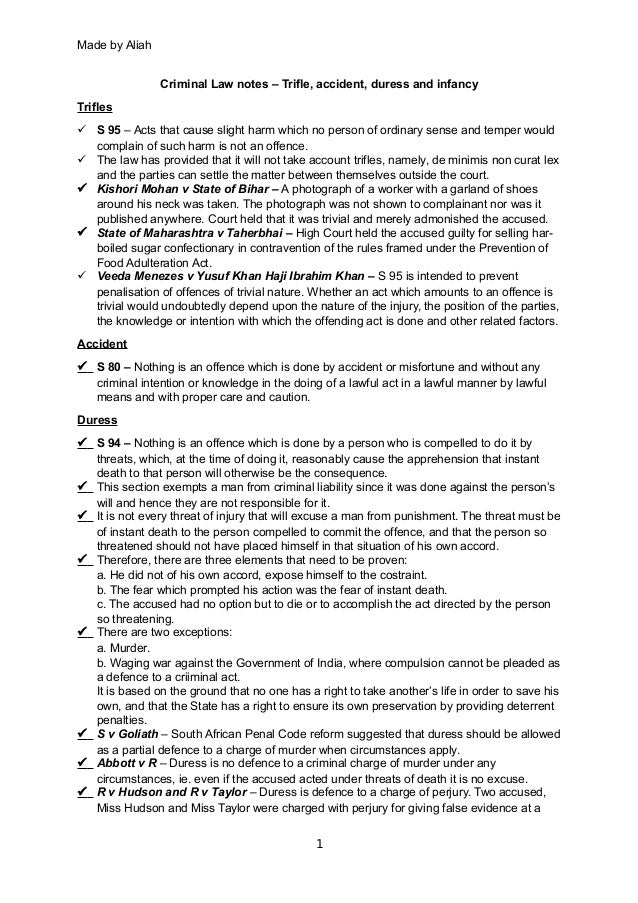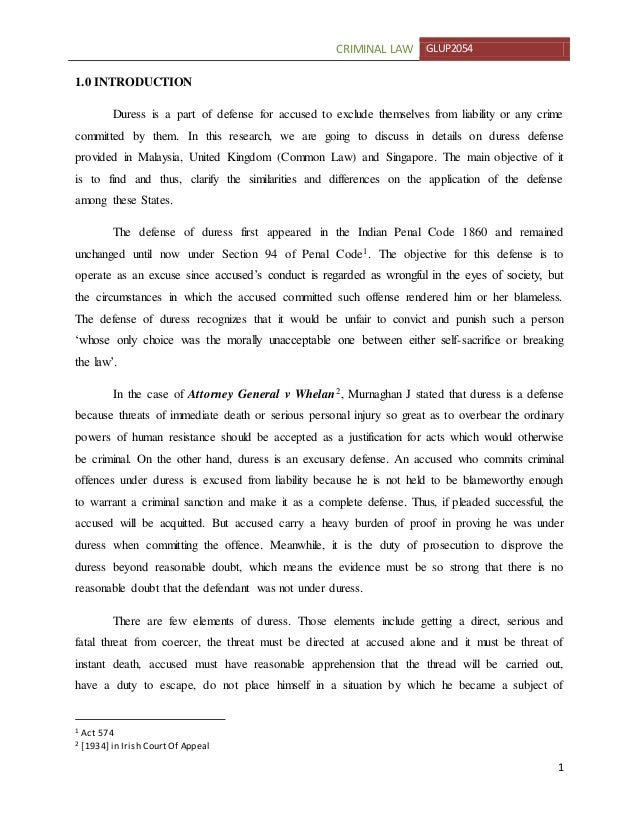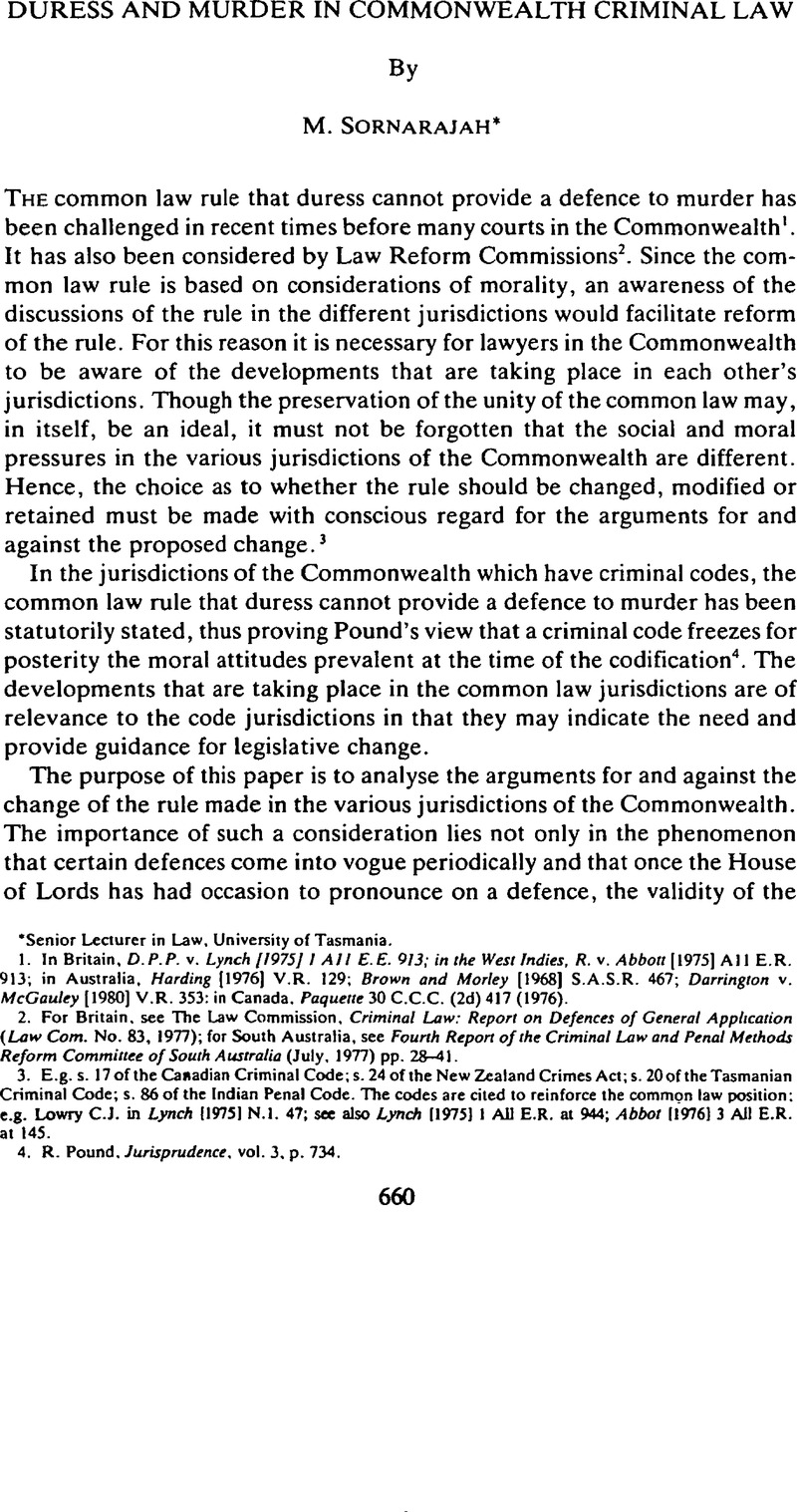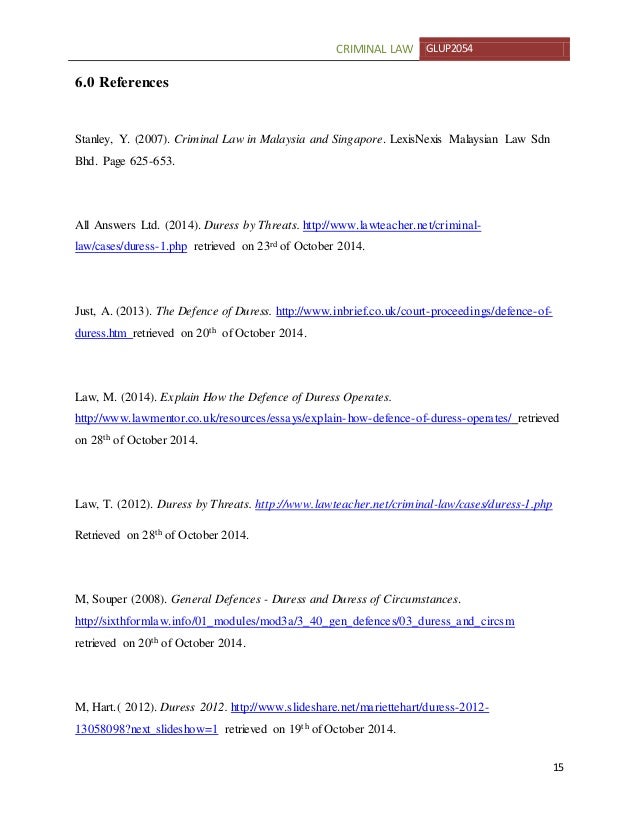Duress Criminal Law

In the criminal law duress also called coercion may be used in trial to exculpate the defendant of guilt.
Duress criminal law. Duress is a full defence to most criminal charges. It must be shown that the accused s will was overborne by threats of death or serious personal injury such that accused is not acting voluntarily. The defense must establish that a reasonable person in the defendant s position also would have committed the crime. While duress is not a justification for committing a crime it can serve as an excuse when a defendant committed a crime because they were facing the threat or use of physical force.
The legal defense of duress means that you cannot be found guilty of a crime if someone else forced you to do it. Duress by threat and duress of circumstances are largely governed by the same criteria thus many of the cases are authority for either type of duress. An accused can be acquitted on the basis of duress if they were essentially forced into committing the acts that make up the criminal offence. In criminal law the defendant s motive for breaking the law is generally irrelevant unless a defendant is raising an affirmative defense allowed for by law.
Duress may or may not be allowed as an affirmative defence for some particular charge in particular it is generally forbidden for murder and many jurisdictions also forbid it for sexual assault. Such dicta as exist indicate that the defence is not available in cases of murder in scotland. There are three elements to the defence. In scots criminal law the defence is known too.
Duress of circumstances is the most recent development in criminal law and is closely linked to duress by threats and the defence of necessity. At common law duress is an available defence to any offences short of murder. That familiar excuse is a valid defense in criminal law. In english criminal law duress is a defence albeit limited to criminal charges probably now also murder.
Duress amounts to the use of coercion force false imprisonment threats or psychological pressure to get someone to act in a way he does not wish or which is not in his best interest. Because the defendant did actually commit an actus reus and some measure of mens rea is present simply because the defendant did actually intend to commit the crime some degree of liability is already attached. Compelling someone to act in such a manner is against the law and whatever they agree to under duress is invalid in the eyes of the law. But the scope of the duress defense is rather limited.
















